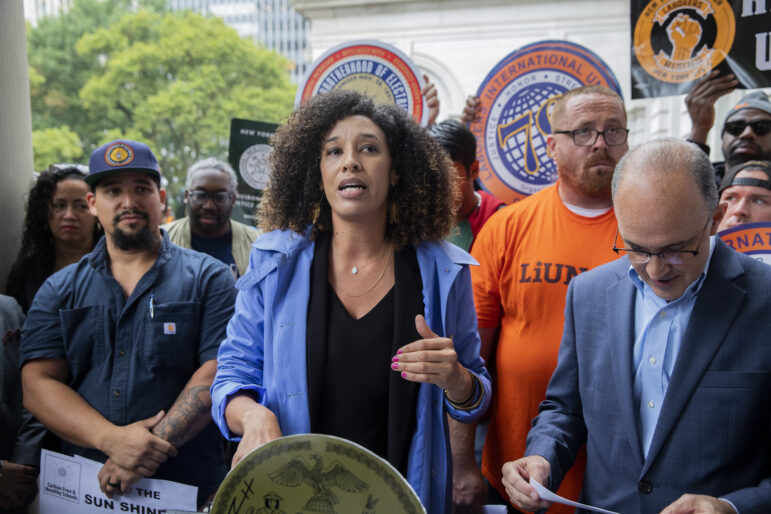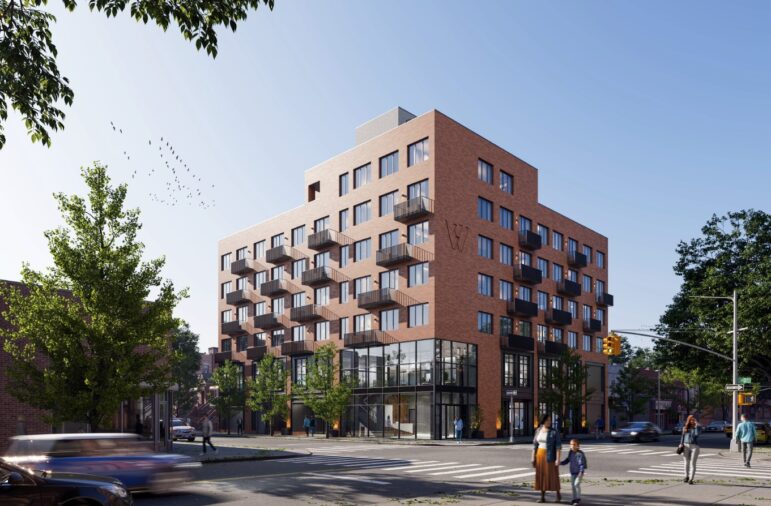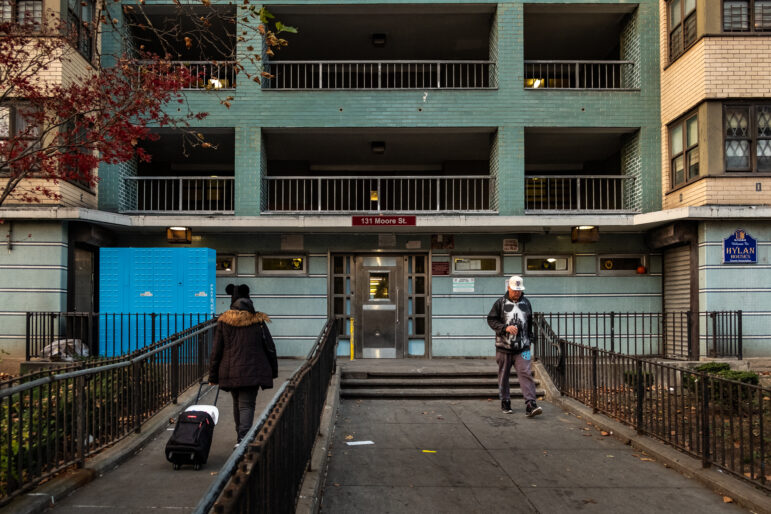
1DmkIIN
Once New York’s mayor. Always ‘American’s mayor,’ in some crowds at least.
Last night in Cleveland, Rudolph W. Giuliani promised, “What I did for New York City, Donald Trump will do for America,” a vow that likely plays well among people who’ve visited the five boroughs but wouldn’t want to live here. Many actual New Yorkers, on the other hand, might skip the time-machine trip to 1997 Rudy has offered.
But the former mayor isn’t the only one hearkening back to the prescriptions of the 1990s. As they did then, and have consistently since, Republicans in 2016 are embracing “traditional family values,” harsh punishments for criminals and the thinning of the social safety net. When it comes to the portions of the Republican platform that address issues important to cities, there’s little new; the exception is when the policy manifesto reacts to President Obama’s sustainability and livability initiatives.
As noted when City Limits reviewed the Democratic platform earlier this month, the Republican platform is a statement of ideas, not an actual governing plan or a binding contract on GOP candidates who prevail in November. With Donald Trumps’ stream-of-consciousness approach to staking out policy positions, this year’s document might be a particularly poor predictor of what would actually happen in a Trump administration. But we excerpt below some of the city-relevant passages in the draft up for consideration in Cleveland for your perusal:
Immigration
Because “sanctuary cities” violate federal law and endanger their own citizens, they should not be eligible for federal funding. Using state licenses to reward people in the country illegally is an affront to the rule of law and must be halted.
Family and poverty
We oppose policies and laws that create a financial incentive for or encourage cohabitation. Moreover, marriage remains the greatest antidote to child poverty. The 40 percent of children who now are born outside of marriage are five times more likely to live in poverty than youngsters born and raised by a mother and father in the home. Nearly three-quarters of the $450 billion government annually spends on welfare goes to single-parent households. This is what it takes for a governmental village to raise a child, and the village is doing a tragically poor job of it.
Welfare
This year marks another important anniversary; it has been 20 years since the landmark Republican welfare reform of 1996 broke away from the discredited Great Society model. By making welfare a benefit instead of an entitlement, it put millions of recipients on a transition from dependence to independence. Welfare rolls declined by half as recipients and prospective recipients discovered a better way to reach their goals. Best of all, about 3 million children moved out of poverty. Today that progress has been lost. Defying the law as it was plainly written, the current Administration has nullified any meaningful work requirement and made TANF a mockery of the name we gave it: Temporary Assistance for Needy Families. This decision ensures that those families will remain needy and cut off from the economic mainstream of American society.
This is the progressive pathology: Keeping people dependent so that government can redistribute income. The result is 45.8 million people on food stamps and 77 million on Medicaid, plus another 5.7 million in the Children’s Health Insurance Program. This is the false compassion of the status quo. We propose instead the dynamic compassion of work requirements in a growing economy, where opportunity takes the place of a hand-out, where true self-esteem can grow from the satisfaction of a job well done.
Housing
Our goal is to advance responsible homeownership while guarding against the abuses that led to the housing collapse. We must scale back the federal role in the housing market, promote responsibility on the part of borrowers and lenders, and avoid future taxpayer bailouts. Reforms should provide clear and prudent underwriting standards and guidelines on predatory lending and acceptable lending practices. Compliance with regulatory standards should constitute a legal safe harbor to guard against opportunistic litigation by trial lawyers.
We call for a comprehensive review of federal regulations, especially those dealing with the environment, that make it harder and more costly for Americans to rent, buy, or sell homes. For nine years, Fannie Mae and Freddie Mac have been in conservatorship and the current Administration and Democrats have prevented any effort to reform them. Their corrupt business model lets shareholders and executives reap huge profits while the taxpayers cover all loses. The utility of both agencies should be reconsidered as a Republican administration clears away the jumble of subsidies and controls that complicate and distort home-buying.
The Federal Housing Administration, which provides taxpayer-backed guarantees in the mortgage market, should no longer support high-income individuals, and the public should not be financially exposed by risks taken by FHA officials. We will end the government mandates that required Fannie Mae, Freddie Mac, and federally insured banks to satisfy lending quotas to specific groups. Discrimination should have no place in the mortgage industry.
Zoning and planning
Zoning decisions have always been, and must remain, under local control. The current Administration is trying to seize control of the zoning process through its Affirmatively Furthering Fair Housing regulation. It threatens to undermine zoning laws in order to socially engineer every community in the country. While the federal government has a legitimate role in enforcing non-discrimination laws, this regulation has nothing to do with proven or alleged discrimination and everything to do with hostility to the self-government of citizens.
The current Administration has a different approach. It subordinates civil engineering to social engineering as it pursues an exclusively urban vision of dense housing and government transit. Its ill-named Livability Initiative is meant to “coerce people out of their cars.” This is the same mentality that once led Congress to impose by fiat a single maximum speed limit for the entire nation, from Manhattan to Montana. Our 1980 Republican Platform pledged to repeal that edict. After the election of Ronald Reagan, we did.
Transit
We propose to remove from the Highway Trust Fund programs that should not be the business of the federal government. More than a quarter of the Fund’s spending is diverted from its original purpose. One fifth of its funds are spent on mass transit, an inherently local affair that serves only a small portion of the population, concentrated in six big cities. Additional funds are used for bike-share programs, sidewalks, recreational trails, landscaping, and historical renovations. Other beneficiaries of highway money are ferry boats, the federal lands access program, scenic byways, and education initiatives. These worthwhile enterprises should be funded through other sources.
Law and Order
The constitutionality of the death penalty is firmly settled by its explicit mention in the Fifth Amendment. With the murder rate soaring in our great cities, we condemn the Supreme Court’s erosion of the right of the people to enact capital punishment in their states. In solidarity with those who protect us, we call for mandatory prison time for all assaults involving serious injury to law enforcement officers.









One thought on “UrbaNerd: What the Republican Platform Says About Cities”
I disagree, look at http://www.huffingtonpost.com/2013/11/21/ancient-city-beneath-gezer-israel_n_4297784.html